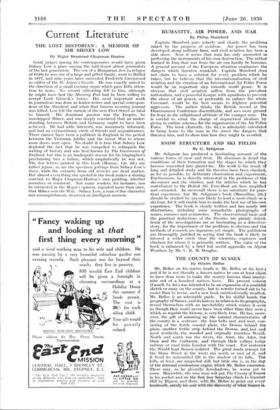Captain Mumford puts soberly and clearly the problems raised by
the progress of aviation. Air power has been developed along militiry lines, and civil aviation has been If side show. Now it seems that man has only succeeded in perfecting the instruments of his own destruction. The author learned in Iraq that war from the air can hardly be humane. A general account of the European situation emphasises the dangers which threaten manlcind. Captain Mumford doei not claim to have a solution for every problem which he raises, but he believes that the internationalisation of civil aviation and the creation of an International Air Police Force would be an important step towards world peace. It is obvious that civil aviation suffers from the prevalent nationalism, and a. powerful League with squadrons to prevent the abuse of air power, or preferably to enforce the whole Covenant, would be the best means to frighten potential aggressors. The author thinks the British record at the Disarmament Conference discreditable, and sees more ground for hope in the enlightened attitude of the younger men. He is careful to rebut the charge of impractical idealism by giving in outline schemes for the organisation of the Air Police Force. The book (Jarrolds, 12s. 6d.) is admirably calculated to bring home to the man in the street the dangers that threaten him, and to show him how they might be avoided. F' SNOW STRUCTURE AND SKI FIELDS










































 Previous page
Previous page